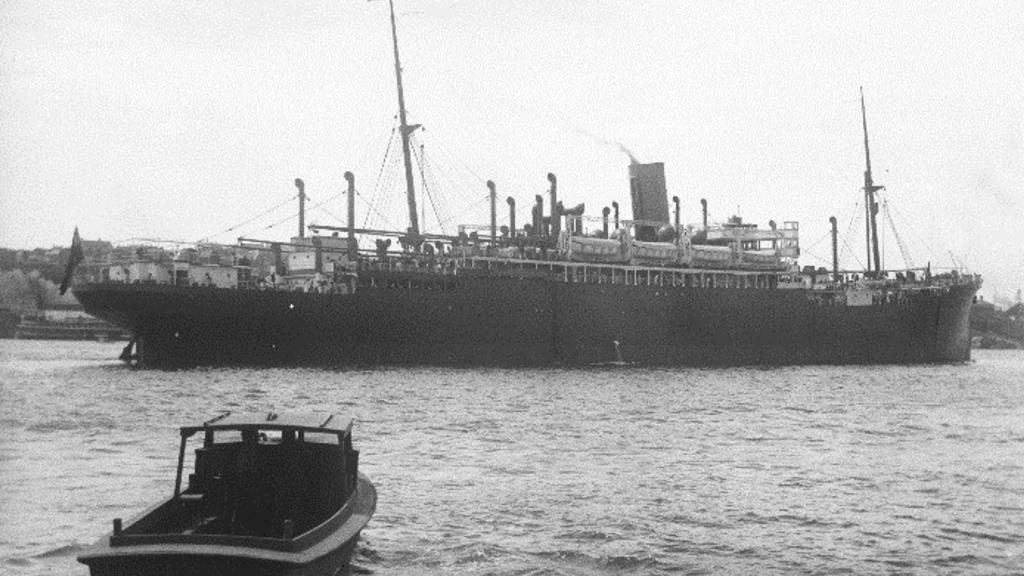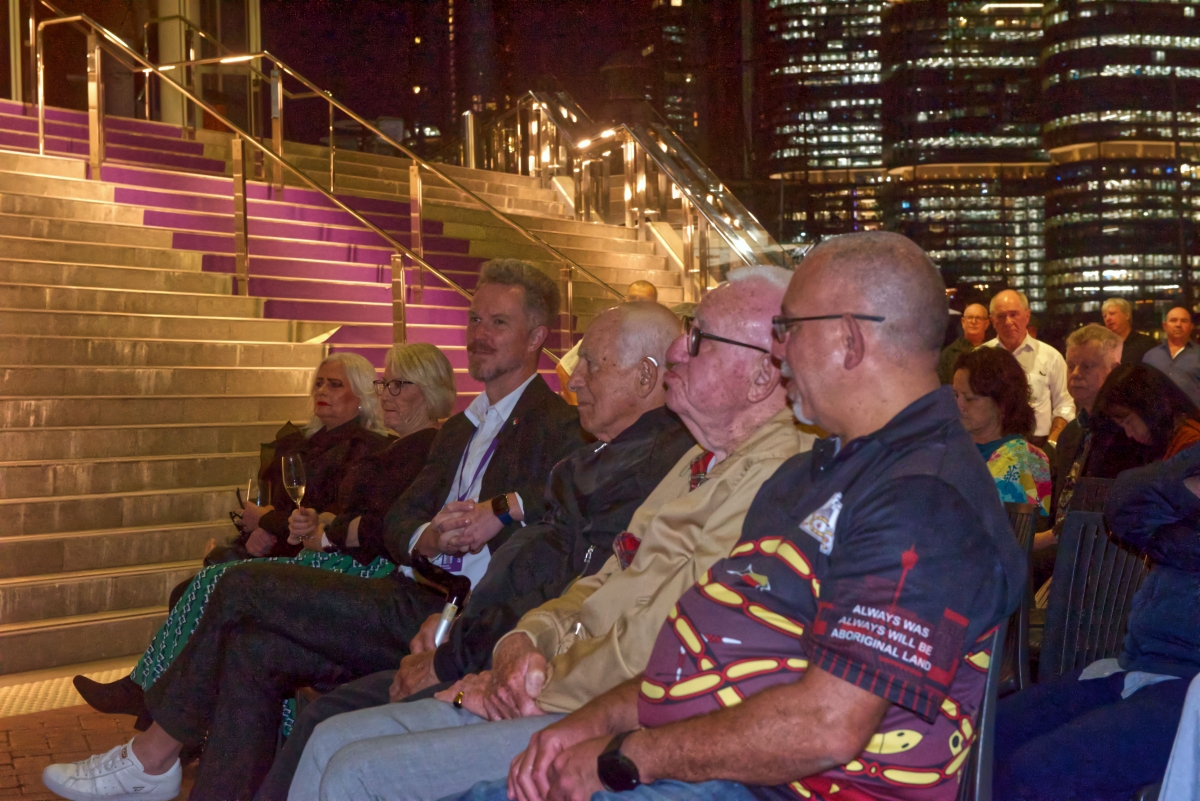Published: 13 Oct 2023
MARITIME UNION OF AUSTRALIA
MEDIA RELEASE
13 OCTOBER 2023
Maritime workers and Indonesian community come together to commemorate 'Black Armada' at Australian National Maritime Museum
At a twilight commemoration on the shores of Darling Harbour, opposite the Hungry Mile on which thousands of Australian wharfies and seafarers toiled in the early to mid 20th Century, the Maritime Union of Australia and representatives from the Indonesian community came together to commemorate the Black Armada and unveil a plaque dedicated to the wharfies and seafarers who defied Dutch colonial rule in Indonesia during the late 1940s.
With the end of hostilities at the close of the Second World War, the Dutch Government-in-Exile of what was then known as the Dutch East Indies, sought to re-establish colonial rule throughout the Indonesian archipelago.
However, Indonesian leaders rightfully seized the opportunity to resist all imperial or colonial rule, and resisted attempts from the Dutch to re-establish the colonial rule they'd ceded to the Japanese. Sukarno and Mohammed Hatta declared independence in August 1945.
Indonesian troops employed by the Dutch in Australia during Japanese occupation of South East Asia refuse orders to fight their brothers and sisters in the new Indonesian Republic. Soon afterward, Indonesian seafarers walk off ships refusing to carry troops, munitions and supplies against their own people. The first Indonesian crew strike occurs in Melbourne and the Sydney branch of the Waterside Workers Federation (WWF) is the first to declare black bans on Dutch arms ships.

The SS Moreton Bay was one of the vessels chartered by the Dutch government-in-exile that was affected by the waterside workers black bans. Frederick Garner Wilkinson, 1901-1975, ANMM Collection
The first refusal to load cargoes occurs in Brisbane when the WWF enforce the ban.
They are immediately followed by tug crew refusing to provide tow ropes and shipyard unions who deny repairs to Dutch ships. Eventually some 31 Australian unions and 4 Asian seafarer unions in Australia (Indonesian, Chinese, Indian, Malay) also boycott Dutch ships.
Speaking at the plaque's unveiling in Sydney, MUA National Secretary and ITF President Paddy Crumlin commended the bonds of solidarity and internationalism at the heart of the Black Armada bans.

The audience gathered at the Australian National Maritime Museum for the unveiling of the plaque to commemorate the Black Armada
"When Indonesian seafarers walked off the Dutch arms ships, they were joined by Chinese, Indian, Vietnamese, Malay and Australian workers on ships and along the waterfront, who all came together in a beautiful expression of internationalism and solidarity with one another against the violence and oppression of colonial rule," Mr Crumlin said.
“The Maritime Union of Australia is proud of the Black Armada union boycott against Dutch arms shipments, and we are proud of our shared struggle against the colonists’ attempt to crush Indonesian Independence," Mr Crumlin added.
In all, some 559 vessels are black banned by unions over the course of 5 years between 1945 and 1949. Eventually, after successive interventions by Australian, Dutch and British governments fail to break the will of the unions' ban, the Australian Government, led by Ben Chifley, directs employers of stevedoring workers to refuse to provide services to Dutch ships, effectively joining the Commonwealth Government to the bans. The ACTU calls for all unions to "refuse to assist in any way whatever the movement of Dutch goods." The Black Bans then become truly international, with fifteen nations worldwide joining the bans, including China, India, and the USA.
Eventually, by late 1949, the Dutch Government cedes to the newly independent Indonesia.
“Neither Australia nor Indonesia would be the countries we are today, or the friends we are today, without this shared history of struggle, solidarity and commitment to justice through independence for our Indonesian comrades," said Mr Crumlin. “We also acknowledge the role the Australian National Maritime Museum has played in recording and honouring the full history of Australia’s maritime history, including where it intersects with the history of our near neighbours and friends throughout Asia and the South Pacific," he added.
Paddy Crumlin (2nd from right) with Mick Doleman, retired National Deputy Secretary MUA, Mathias Thambing, President of KPI, Vedi Kurnia Buana, Indonesian Consul General, and I Dewa Nyoman Budiasa, General Secretary of KPI.
The commemoration ceremony included speeches from the Indonesian Consul-General to Australia, Mr Vedi Kurnia Buana, Professor Heather Goodall from the University of Technology Sydney, Neil Smith, from the Australia Indonesia Association, and Mathias Tambing, President of Kesatuan Pelaut Indonesia (Indonesian Seafarers Union).
ENDS